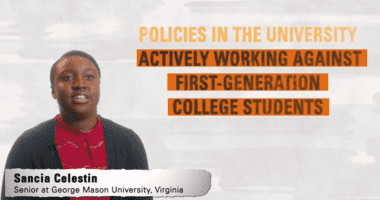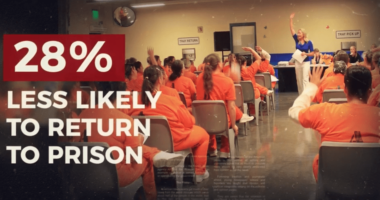Why Community College was the Best Choice for Me
Twelve years of school all led up to a moment often romanticized in teen dramedies, encouraged by educators, and the topic of conversation at countless family dinners. All that time I’d spent in a classroom, eagerly engrossed or equally exhausted, was all riding on that moment: choosing a college.
When I finally had my big moment, I decided to attend El Paso Community College in my hometown. I made the choice not due to a lack of acceptances from four-year universities, but because I knew EPCC would be the best place for me at that moment. I was excited to embark on this journey toward higher education. The only people more eager than I was were my family, supporting me every step of the way.
However, by deciding to attend my local community college, I was also met with consolation prize congratulations and the occasional, “That’s where you chose to go? Why community college? Why not a four-year?”
I was not surprised by dismissive remarks but disheartened. I was also no stranger to the community college stigma but questioned why its reputation was rooted in the notion that this was a “last resort.” Why do we feel compelled to neglect or criticize community colleges in particular?
For fellow EPCC alum and former Student Government Association President Cristina Navarro, the decision to attend community college was a pivotal moment.
“While attending EPCC, I was exposed to experiences and opportunities I did not know existed before attending. I joined a club, became president of that club, and learned how to lead people,” she said. “As student body president, I encountered students with issues I was unaware of because their experiences differed from mine. I was able to speak on their behalf in hopes of improving their experience. I graduated with leadership skills, a supportive community, and access to resources that will help me succeed in life.”
For Navarro, community college was not only a means to education but an opportunity to discover a different part of herself — her ability to be a leader and use her voice to advocate for students within her community. As her experience evolved, Navarro evolved and flourished.
So, what’s wrong with earning a degree or certification at a community college? The answer is nothing. Community colleges enroll 43% of all Texas postsecondary students and 68% of all freshman and sophomores, and 70% of all Texans who complete a bachelor’s earn credits at a community college.
Additionally, Texas community college students serve the diversity of our state, awarding 44% of credentials to economically disadvantaged students, enrolling 72% of all minority freshmen and sophomores, and reaching nearly as many “nontraditional” students as those ages 18-21.
Students like Navarro are a testament that community college isn’t just an option, but it can be the best option. She now uses her voice and experiences to advocate with and for other community college students across the state through the Student Advisory Council, organized and supported by the Texas Postsecondary Advocates Coalition for Equity.
Together, Navarro and fellow SAC members actively engaged in the work of the Texas Commission on Community College Finance, sharing experiences and recommendations to improve student support and outcomes.
El Pasoan Woody Hunt chairs the commission, which recently released its draft recommendations to the Texas Legislature — reflecting the input of students like Navarro. The recommendations include new, more equitable funding commitments, prioritization of dual credit access for low-income students, increased investment in need-based financial aid, expansion of paid work-based learning opportunities, and an overarching focus on successful student outcomes. These recommendations represent a giant leap toward building a stronger, brighter future for Texas.
Education is not one-size-fits-all, and every student’s trajectory is unique. When we underinvest in community college or position it as a less desirable option, we take an opportunity away from a student and invalidate the experiences of many. We can and must do better.
Texas can dismantle the stigma and thoughtfully invest in its largest sector of higher education and in the success of students who will transform and transcend their communities. As the commission finalizes and delivers its recommendations to the Legislature, it has never been more important to advocate for community college students and engage with our state legislators.
Community college can no longer be an afterthought; it demands to be championed.
Hope Barrón is a first-generation Mexican-American college graduate and native of El Paso. She is an El Paso Community College alumna and graduated from New Mexico State University with her bachelor’s in journalism and media studies. She is the Texas digital communications fellow at The Education Trust and is pursuing her master’s degree at American University’s School of Communication.
Originally published in El Paso Matters.










